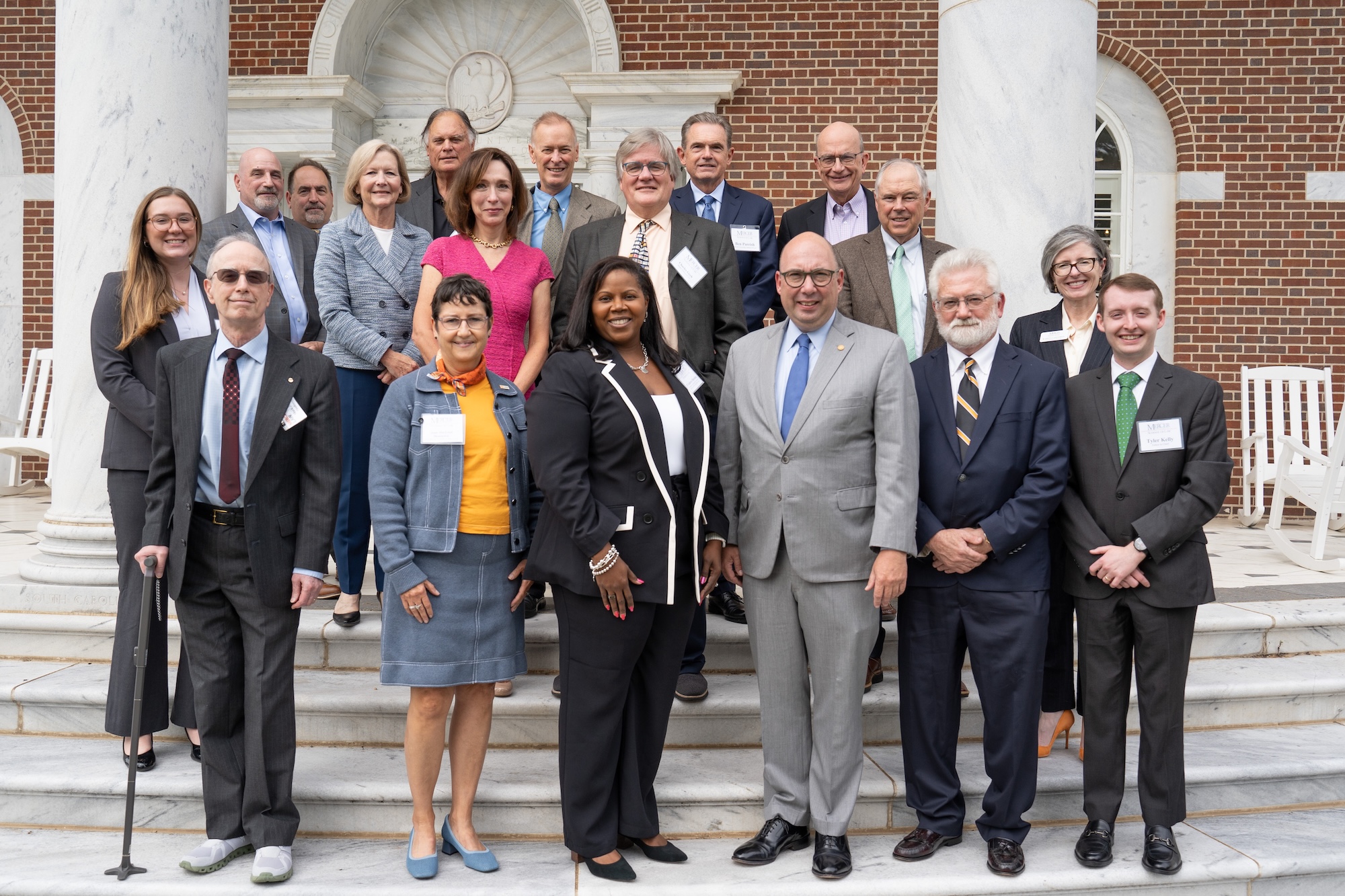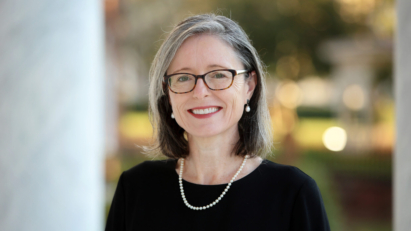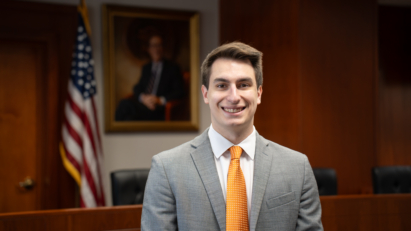Law Review Symposium

Mercer University School of Law hosted the 2024 Mercer Law Review Symposium, Volume 76, titled “Parts of a Whole: The Multiple Roles of the Lawyer and Professional Identity” on Thursday, Oct. 3 and Friday, Oct. 4. Mercer Law School is a national leader in the professional identity movement.
On Thursday evening, before the Friday event, Mercer School of Law and Mercer Law Review hosted a dinner for Symposium panelists, current Law Review students, and Law Review students from the classes of 2021-2023 in the President’s Dining Room at the University Center on main campus. Mary Smith, immediate past president of the American Bar Association, was the keynote speaker. She is the first Native American woman to serve in this role. Smith was introduced by Hon. R. Lanier Anderson, III, for whom Smith clerked for a year after graduating from University of Chicago Law School. Anderson is a federal judge on senior status with the United States Court of Appeals for the Eleventh Circuit.
In the Bell Jones court room Friday morning, the symposium included four high-powered panels, each consisting of legal academics and legal practitioners, exploring how professional identity is instantiated in the roles of the lawyer as counselor, advocate, judge, or other neutral actor, and active participant in public life. The goal was to provide engaging presentations and generate candid conversations that will enable legal professionals to reflect upon, and articulate, their own professional identity and the challenges they face in maintaining such identity as they perform these roles in their life in the law.
The symposium opened with a welcome, introductions, and a program overview by Rachel N. Ratajczak, lead articles editor, Vol. 76, Tyler Kelly, editor-in-chief, Vol. 76, Dean Karen J. Sneddon, and Patrick Longan, William Augustus Bootle Cahir in Professionalism and Ethics.
The first panel discussed “Lawyer as Counselor,” and featured Joan MacLeod Heminway (University of Tennessee College of Law), D’Andrea Morning, ’07, (vice-president corporate compliance/chief compliance and privacy officer, Grady Health System), and Ben Parrish, ’82, (Mercer University School of Law). Professor Daisy Floyd moderated the discussion.
The second panel discussed “Lawyer as Advocate,” and featured Mark Brown (Capital University), Jonathan Rapping (John Marshall Law School), and Christian Stegmaier (president and chief executive officer, Collins & Lacy). Professor Pat Longan moderated the discussion.
The third panel discussed “Lawyer as Judge or Other Neutral Actor,” and featured Justice Verda M. Colvin (Georgia Supreme Court), Charles Geyh (Indiana University Maurer School of Law), and Judge Marc Thomas Treadwell, ’81, (U.S. District Court for the Middle District of Georgia). Professor Kaleb Byers moderated the discussion.
The fourth panel discussed “Lawyer as Active Participant in Public Life,” and featured Doug Ammar (executive director, Georgia Justice Project), Gene R. Nichol (University of North Carolina at Chapel Hill School of Law), and Teresa Pike Tomlinson (Hall Booth Smith). Professor Tim Floyd moderated the discussion.
Closing remarks were provided by Mark L. Jones, who retired as professor of law in June and served as joint faculty coordinator for the symposium, Tyler Kelly, and Rachel N. Ratajczak.
Jones said, “I see the ultimate purpose of the Symposium as being to help aspiring and practicing lawyers find greater meaning, purpose, and fulfilment as lawyers and thus help them to flourish as members of a great and noble profession.” The articles and other contributions generated by the symposium will be published in the Law Review’s Lead Articles edition in the spring of 2025.”
The Mercer Law Review was founded in 1949 and is the oldest continuously published law review in Georgia. Each year the Law Review publishes five issues, including an Annual Survey of Georgia Law, an Annual Eleventh Circuit Survey, an Articles issue, a Lead Articles issue, and an online companion highlighting student scholarship. It also holds an Annual Symposium bringing together students, practitioners, and scholars to analyze a selected legal topic and publishes the Symposium proceedings in the Lead Articles issue.


